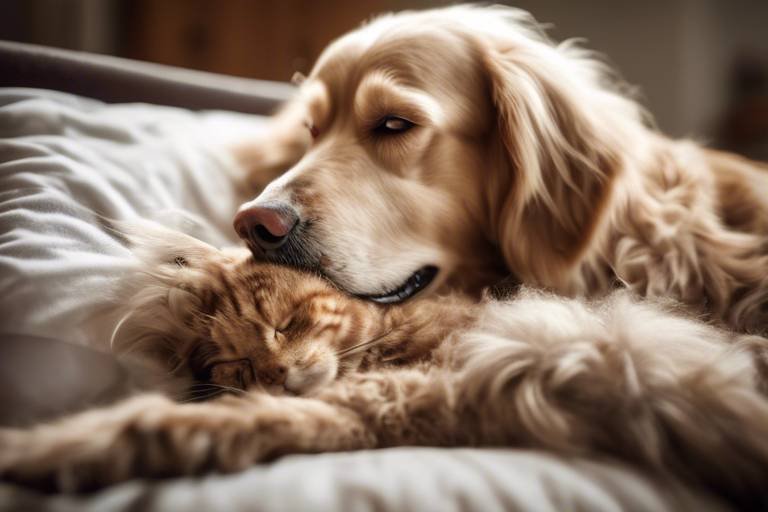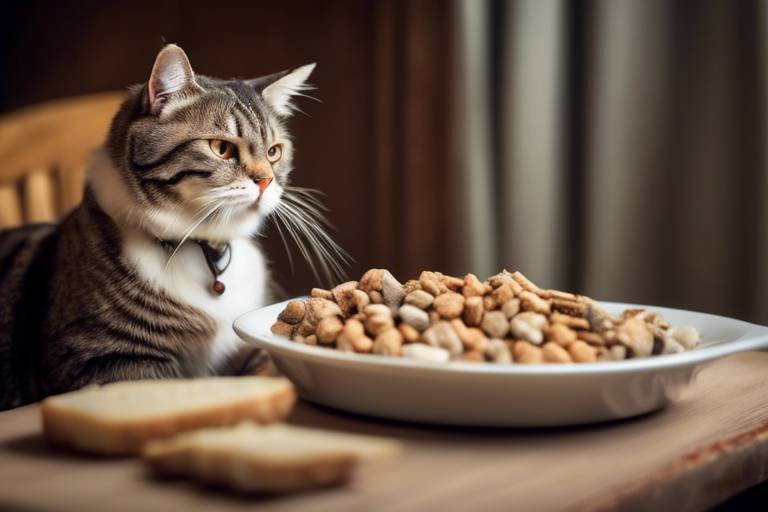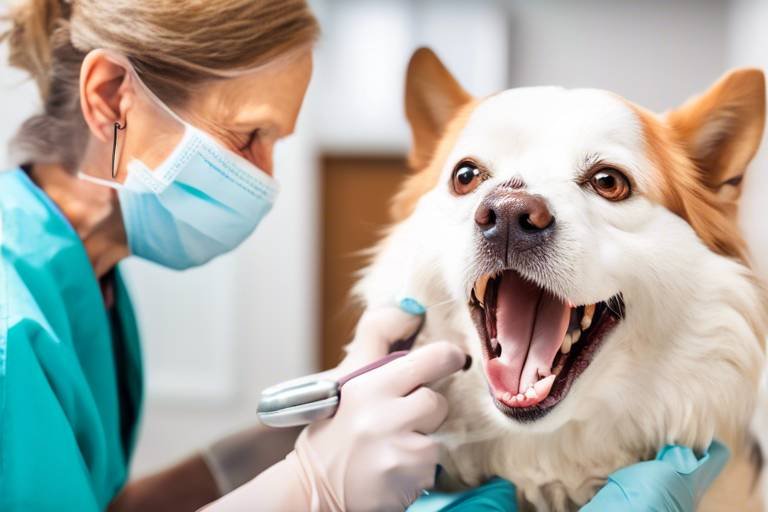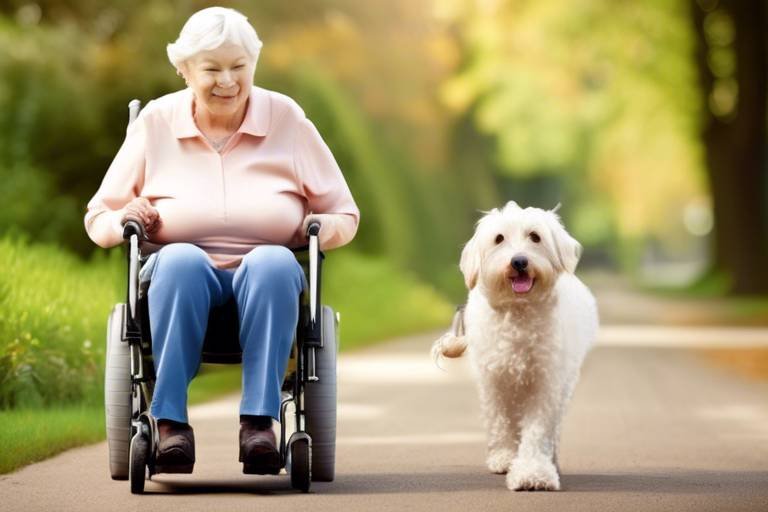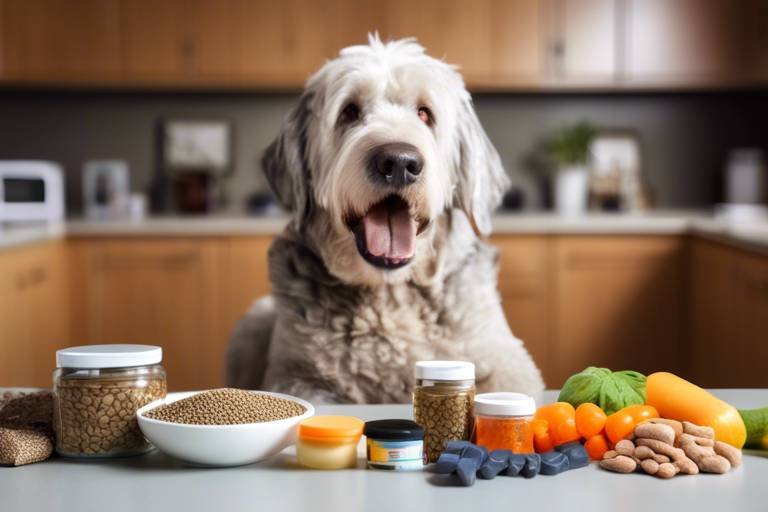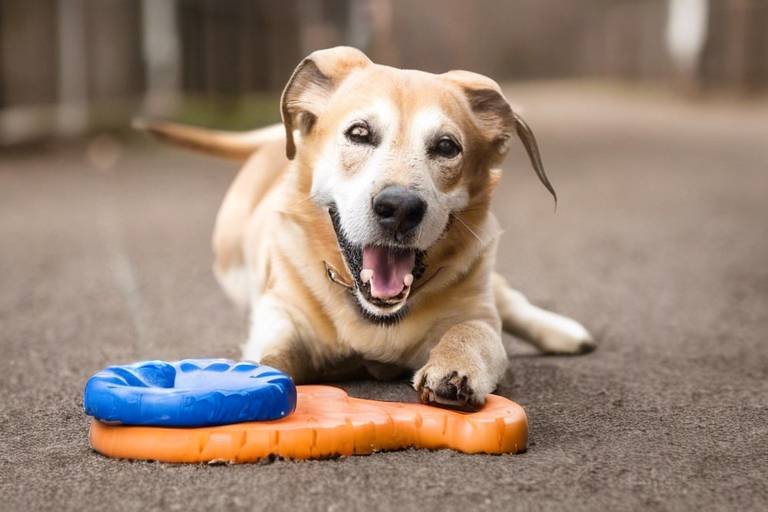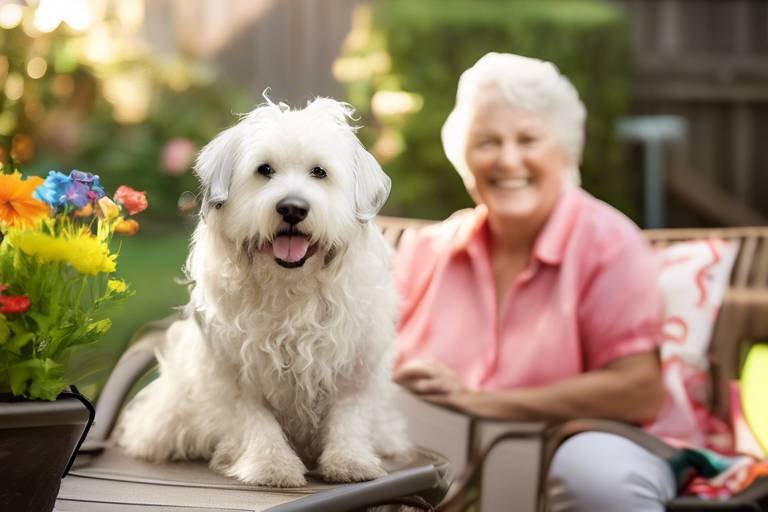Caring for Senior Pets with Heart Disease
Caring for senior pets diagnosed with heart disease can feel like navigating a maze. It’s a journey filled with challenges, but with the right knowledge and care strategies, you can significantly improve your furry friend’s quality of life. Just like humans, our beloved pets can suffer from heart issues as they age, and understanding how to manage these conditions is crucial. It’s not just about extending their lives but also ensuring their remaining years are filled with comfort and joy. So, let’s dive into the essentials of caring for your senior pet with heart disease, covering everything from understanding the condition to recognizing symptoms and making dietary adjustments.
Heart disease in senior pets is a common yet serious condition that can take many forms, including congestive heart failure, heartworm disease, and valvular heart disease. These conditions can arise from various causes such as genetics, poor diet, or even a sedentary lifestyle. When the heart struggles, it affects the entire body, leading to a cascade of health issues. Think of the heart as the engine of a car; if it starts to sputter, the whole vehicle can break down. By understanding the types of heart disease and their implications, you can be better prepared to provide the necessary care and support for your pet.
Identifying the symptoms of heart disease is crucial for early intervention. Just like a warning light on your car’s dashboard, your pet’s body will send signals when something is wrong. Common symptoms include:
- Coughing: Frequent coughing can indicate fluid buildup in the lungs.
- Lethargy: A noticeable decrease in energy levels may mean your pet is struggling.
- Difficulty Breathing: Rapid or labored breathing is a serious sign that warrants immediate attention.
Being aware of these indicators can help you act quickly and seek veterinary assistance when necessary. Remember, early detection can make a world of difference!
As a pet owner, you know your furry friend better than anyone else. Pay close attention to any changes in their behavior or physical condition. Symptoms like coughing, lethargy, and difficulty breathing should not be ignored. Understanding these signs can be your best tool in ensuring your pet receives the help they need promptly.
Behavioral changes can often be the first indication that something is amiss. If your once-playful pup suddenly becomes a couch potato, it could be a red flag. Decreased activity or reluctance to play can signal heart issues. Just like we might feel sluggish when we’re not well, your pet may exhibit similar signs. Observing these changes is vital for early diagnosis and treatment.
Physical signs like a swollen abdomen or rapid breathing may indicate worsening heart conditions. For instance, if you notice your pet’s belly appears bloated, it could be due to fluid accumulation. Regular monitoring can help detect these alarming symptoms early, so keep an eye out for any unusual physical changes.
Knowing when to consult a veterinarian is key to managing your pet's heart disease. If you notice any of the aforementioned symptoms, don’t hesitate to reach out to your vet. It’s always better to be safe than sorry! Establishing a good relationship with your veterinarian will ensure that your pet receives the best possible care throughout their heart disease journey.
Proper nutrition plays a significant role in managing heart disease. Just like a high-performance car needs premium fuel, your pet requires a heart-healthy diet to maintain their strength and vitality. Dietary adjustments and supplements can make a world of difference in supporting your pet’s heart health.
A heart-healthy diet often includes low sodium and high-quality protein. Foods rich in omega-3 fatty acids can also provide significant benefits. Consult your veterinarian for specific dietary recommendations tailored to your pet’s condition. It’s essential to choose foods that nourish their heart while still appealing to their taste buds!
Certain supplements, such as omega-3 fatty acids and taurine, can support heart function. These can be particularly helpful for pets with existing heart conditions. Always discuss any new supplements with your veterinarian to ensure they’re appropriate for your pet.
Maintaining an appropriate exercise routine is essential for senior pets with heart disease. Just like a garden needs regular watering to thrive, your pet requires gentle, consistent activity to keep their heart healthy. However, it’s crucial to tailor their exercise regimen to their specific needs and limitations.
Every pet's exercise needs vary, especially those with heart disease. Some pets may only need short walks, while others might enjoy gentle playtime in the yard. We provide tips on customizing activity levels based on your pet's condition and stamina. Always monitor their reaction to exercise and adjust accordingly.
Finding safe playtime activities can help keep your pet active without overexertion. Gentle games like fetch with a soft toy or short, leisurely walks can be enjoyable without putting too much strain on their heart. Remember, the goal is to keep them engaged and happy!
Regular monitoring is crucial for managing heart disease in senior pets. Keeping a close eye on their health can help you catch any potential issues before they escalate. This section highlights effective strategies for tracking your pet's health and recognizing changes.
Maintaining a health journal can help track symptoms, medications, and vet visits. This tool aids in communicating effectively with your veterinarian about your pet’s condition. Documenting changes in behavior, appetite, and activity levels can provide valuable insights for your vet.
Routine check-ups are essential for monitoring heart health. Regular veterinary visits ensure your pet receives appropriate care and adjustments to their treatment plan. Just like we need regular check-ups to stay healthy, our pets do too!
1. How can I tell if my pet is in pain due to heart disease?
Look for signs like whining, pacing, or changes in appetite. If you suspect your pet is in pain, consult your veterinarian immediately.
2. Can heart disease be treated in pets?
Yes, while heart disease may not be curable, it can often be managed with medication, dietary changes, and lifestyle adjustments.
3. What should I do if my pet has a heart disease diagnosis?
Focus on providing a supportive environment, maintaining a healthy diet, and ensuring regular veterinary check-ups.
4. Are there specific breeds more prone to heart disease?
Yes, certain breeds like Cavalier King Charles Spaniels and Boxers are more susceptible to heart issues. Regular monitoring is essential for these breeds.
5. What signs indicate that my pet's condition is worsening?
Watch for increased coughing, difficulty breathing, or drastic changes in behavior. If you notice any of these signs, contact your vet immediately.

Understanding Heart Disease in Pets
This article provides essential insights into managing the health and well-being of senior pets diagnosed with heart disease, including care strategies, dietary considerations, and signs to watch for.
Heart disease in senior pets is a common yet serious condition that can significantly impact their quality of life. Just like in humans, heart disease can arise from various factors, including age, genetics, and lifestyle. It's crucial to understand that there are different types of heart disease, each with its own causes and implications for your pet's health. For instance, congenital heart disease is present at birth, while acquired heart disease develops over time, often due to conditions such as obesity or high blood pressure.
Some of the most prevalent types of heart disease in pets include:
- Mitral Valve Disease: This is the most common heart condition in older dogs, where the mitral valve fails to close correctly, leading to blood leakage.
- Cardiomyopathy: This condition affects the heart muscle, making it difficult for the heart to pump blood efficiently. It's common in certain breeds, such as Doberman Pinschers and Boxers.
- Heartworm Disease: Transmitted by mosquitoes, heartworms can cause severe damage to the heart and lungs if left untreated.
Understanding the causes of heart disease is equally important. Factors such as poor diet, lack of exercise, and obesity can contribute to the development of heart conditions. Additionally, some pets may have a genetic predisposition to heart disease, making it essential to keep an eye on their health as they age. Regular veterinary check-ups can help catch potential issues early, allowing for timely intervention and management.
As your pet's caregiver, being aware of how heart disease affects their overall health is vital. It can lead to complications such as congestive heart failure, where the heart cannot pump enough blood to meet the body's needs. This condition can result in fluid buildup in the lungs and abdomen, causing discomfort and reduced mobility. By recognizing the signs and understanding the underlying issues, you can take proactive steps to enhance your pet's quality of life.
In summary, heart disease is a multifaceted issue that requires careful attention and management. By staying informed and vigilant, you can help your senior pet navigate this challenging condition and ensure they receive the best possible care.
Identifying the symptoms of heart disease is crucial for early intervention. Here, we outline the common signs to look for in senior pets, ensuring timely veterinary care.
Common symptoms include coughing, lethargy, and difficulty breathing. Understanding these indicators can help pet owners act quickly and seek veterinary assistance when necessary.
Behavioral changes such as decreased activity or reluctance to play can signal heart issues. Observing these changes is vital for early diagnosis and treatment.
Physical signs like swollen abdomen or rapid breathing may indicate worsening heart conditions. Regular monitoring can help detect these alarming symptoms early.
Knowing when to consult a veterinarian is key to managing your pet's heart disease. This section provides guidelines on when to seek professional help.
Proper nutrition plays a significant role in managing heart disease. Here, we discuss dietary adjustments and supplements that can benefit senior pets with heart conditions.
A heart-healthy diet often includes low sodium and high-quality protein. This subsection outlines the best dietary options for senior pets diagnosed with heart disease.
Certain supplements, such as omega-3 fatty acids and taurine, can support heart function. This part explores beneficial supplements that can enhance your pet's health.
Maintaining an appropriate exercise routine is essential for senior pets with heart disease. This section discusses safe activity levels and how to keep your pet engaged without overexertion.
Every pet's exercise needs vary, especially those with heart disease. We provide tips on customizing activity levels based on your pet's condition and stamina.
Finding safe playtime activities can help keep your pet active. This subsection suggests gentle games and exercises suitable for pets with heart conditions.
Regular monitoring is crucial for managing heart disease in senior pets. This section highlights effective strategies for tracking your pet's health and recognizing changes.
Maintaining a health journal can help track symptoms, medications, and vet visits. This tool aids in communicating effectively with your veterinarian about your pet’s condition.
Routine check-ups are essential for monitoring heart health. This part emphasizes the importance of regular veterinary visits to ensure your pet receives appropriate care.
Q: What are the early signs of heart disease in pets?
A: Early signs can include coughing, fatigue, and decreased exercise tolerance. Monitoring your pet's behavior is crucial.
Q: How can I help my pet with heart disease?
A: Providing a balanced diet, ensuring regular veterinary check-ups, and maintaining a suitable exercise routine can help manage their condition.
Q: Are there specific foods I should avoid for my pet?
A: Yes, you should avoid high-sodium foods and those with low-quality ingredients. Always consult your veterinarian for tailored dietary advice.

Recognizing Symptoms of Heart Disease
Heart disease in senior pets can often be a silent threat, creeping up on our furry friends without much warning. As a responsible pet owner, it's crucial to be vigilant and aware of the signs that might indicate your beloved companion is struggling. Just like humans, pets can exhibit a range of symptoms when their hearts are not functioning optimally. Recognizing these symptoms early can make all the difference in ensuring your pet receives the necessary care and treatment.
One of the most common indicators of heart disease is persistent coughing. If you notice your pet coughing frequently, especially after exertion or while resting, it could be a sign that fluid is building up in their lungs. Additionally, lethargy is another significant symptom; if your pet seems unusually tired or disinterested in their favorite activities, it may be time to investigate further. It’s important to remember that while some level of tiredness is normal as pets age, a sudden change in energy levels should not be overlooked.
Another critical symptom to monitor is difficulty breathing. If your pet is panting excessively or seems to struggle for breath even during light activity, this could indicate a serious heart issue. Similarly, look out for any signs of a swollen abdomen. This can occur due to fluid accumulation, and if you notice this change, it’s essential to consult your veterinarian immediately. It’s like a red flag waving in the wind, signaling that something is not right.
Behavioral changes can also provide valuable clues about your pet's heart health. For instance, if your once-active pet now shows reluctance to play or goes to their bed more often, these shifts in behavior could be linked to heart problems. Pets can’t tell us when they’re feeling unwell, but they often communicate through their actions. Being observant can help you catch these changes early.
Physical signs are equally important to watch for. Rapid breathing, even when your pet is calm, can be a warning sign. If you find yourself counting your pet's breaths and noticing they seem faster than usual, it’s wise to reach out to your veterinarian. Regular monitoring of your pet's behavior and physical condition is key to catching heart disease before it progresses too far.
In summary, recognizing the symptoms of heart disease in senior pets is a crucial part of responsible pet ownership. By being aware of signs such as coughing, lethargy, difficulty breathing, behavioral changes, and physical symptoms, you can take proactive steps to ensure your pet receives the care they need. Remember, your pet relies on you to be their voice, so staying informed and observant can lead to timely veterinary care that may save their life.
- What are the early signs of heart disease in pets? Early signs include coughing, lethargy, and difficulty breathing.
- How can I monitor my pet for heart disease? Regular observation of behavior, physical changes, and maintaining a health journal can help.
- When should I take my pet to the vet? If you notice any concerning symptoms, especially changes in breathing or behavior, consult your veterinarian immediately.
Common Symptoms to Monitor
When it comes to our beloved senior pets, being vigilant about their health is of utmost importance, especially when heart disease is a concern. Just like how we might notice our own bodies changing as we age, our furry friends exhibit signs that something might be amiss. Recognizing these symptoms early can make a significant difference in managing their condition. Here are some of the most common symptoms to keep an eye out for:
Coughing is one of the primary indicators of heart disease in pets. If your dog or cat starts to cough more frequently, especially during or after exercise, it could be a sign that their heart isn't functioning as well as it should. Think of it as your pet's way of saying, "Hey, something's not right here!"
Lethargy is another red flag. If your once-active pet suddenly prefers lounging on the couch instead of chasing after their favorite toy, it may be time to investigate further. Just like humans, pets can feel fatigued when their hearts struggle to pump blood effectively. This decreased energy can be alarming, and it’s essential to pay attention to these changes.
Difficulty breathing is a serious symptom that should never be ignored. If your pet seems to be panting excessively or has trouble catching their breath, it could indicate fluid buildup in their lungs, a common issue in pets with heart disease. Imagine trying to breathe through a straw; that's how your pet might feel when their heart is under stress.
In addition to these primary symptoms, there are behavioral changes that can signal heart issues. For instance, if your pet shows a reluctance to engage in play or seems unusually anxious, these could be signs that they are not feeling well. Observing their behavior closely is crucial, as pets often hide their discomfort until it becomes severe.
Furthermore, physical signs such as a swollen abdomen or rapid breathing should be monitored closely. A swollen belly could indicate fluid retention, while rapid breathing may suggest that your pet is struggling for air. These symptoms can escalate quickly, so regular monitoring is essential for early detection.
In summary, being aware of these symptoms—coughing, lethargy, difficulty breathing, behavioral changes, and physical signs—can empower you as a pet owner to seek timely veterinary care. Remember, your pet relies on you to notice these changes and advocate for their health. Don't hesitate to reach out to your veterinarian if you observe any of these symptoms; early intervention can lead to better outcomes and a happier, healthier life for your furry companion.
- What should I do if I notice symptoms of heart disease in my pet?
Contact your veterinarian immediately for an evaluation. - Can heart disease in pets be treated?
Yes, many cases can be managed with medication, diet, and lifestyle changes. - How often should I take my senior pet to the veterinarian?
Regular check-ups, at least once a year, are recommended for senior pets. - Are there specific breeds more prone to heart disease?
Yes, certain breeds like Cavalier King Charles Spaniels and Boxers are more susceptible.
Behavioral Changes
When it comes to our furry friends, can often be the first indicator that something is amiss, especially in senior pets battling heart disease. Imagine your pet, once full of life and energy, suddenly becoming a shadow of their former self. It can be heart-wrenching to witness such a transition, but recognizing these signs early can make a world of difference in their care and treatment.
One of the most noticeable changes might be a decrease in activity levels. You may find your pet lounging in their favorite spot more often, seemingly uninterested in their usual playtime antics. This lethargy can be attributed to the heart working overtime to pump blood, making even simple activities feel exhausting. If your once playful pup now prefers to snooze on the couch, it’s time to take note.
Another behavioral change to observe is a reluctance to engage in activities they once enjoyed. For instance, if your cat used to chase after toys or your dog loved to fetch, but now they show little interest, it could be a sign of heart trouble. It’s like watching a vibrant painting fade to gray; their zest for life diminishes, and it’s essential to understand that this isn’t just aging—this could be a serious health concern.
Additionally, some pets may exhibit signs of anxiety or restlessness. You might notice them pacing, whining, or even hiding more than usual. These behaviors can stem from discomfort or distress caused by their condition. It’s crucial to create a calm environment, as stress can exacerbate heart issues. Consider providing a cozy, quiet space where your pet can feel secure.
To help you further understand these changes, here’s a quick overview of common behavioral signs to monitor:
- Decreased activity levels
- Reluctance to play or engage
- Signs of anxiety or restlessness
- Changes in sleeping patterns
- Increased vocalization or unusual sounds
In essence, being attuned to your pet's behavior is crucial. If you notice any of these signs, don’t hesitate to reach out to your veterinarian. Early intervention can lead to better management of their heart disease and improve their overall quality of life. Remember, your pet relies on you to be their advocate, so keep a close eye on their behavior and don’t ignore the subtle changes that might indicate a deeper issue.
Q: What should I do if I notice behavioral changes in my senior pet?
A: If you observe any significant behavioral changes, it's important to consult your veterinarian as soon as possible. Early detection can lead to more effective treatment options.
Q: Can heart disease in pets be managed with lifestyle changes?
A: Yes, lifestyle changes such as diet adjustments, controlled exercise, and regular veterinary check-ups can significantly help manage heart disease in pets.
Q: Are there specific signs that indicate my pet's condition is worsening?
A: Yes, signs such as increased lethargy, difficulty breathing, or swelling in the abdomen are serious and require immediate veterinary attention.
Q: How can I support my senior pet with heart disease at home?
A: Providing a low-sodium diet, ensuring they have a comfortable resting space, and engaging them in gentle, tailored activities can greatly support their health.
Physical Signs to Watch For
When it comes to caring for our beloved senior pets, being vigilant about physical signs can make all the difference in managing heart disease effectively. Just like humans, pets can exhibit a variety of symptoms that may indicate a worsening condition. One of the most alarming signs to watch for is a swollen abdomen. This can be a result of fluid accumulation, which is often linked to heart failure. If you notice your pet's belly appearing larger than usual, it’s essential to consult your veterinarian promptly.
Another critical sign is rapid or labored breathing. While it’s normal for pets to pant after exercise, excessive panting at rest, or difficulty catching their breath can signal serious heart issues. This can be particularly concerning if you observe your pet struggling to breathe or if their breathing rate seems elevated even when they are calm.
Additionally, you should keep an eye out for coughing. A persistent cough, especially if it occurs at night or after exercise, can indicate fluid buildup in the lungs, which is often a consequence of heart disease. This is not just a minor inconvenience; it’s a red flag that should never be ignored.
Alongside these signs, fatigue and lethargy can also be indicative of heart problems. If your pet seems less interested in their usual activities, such as walks or playtime, it could be a sign that their heart isn’t functioning optimally. It's important to note that these changes can be subtle. For example, they might not want to chase their favorite toy or might prefer to rest rather than go for a walk. Observing these shifts in behavior is crucial for early diagnosis and intervention.
Lastly, changes in appetite can signal underlying health issues, including heart disease. If your pet suddenly becomes picky about food or skips meals altogether, this could indicate discomfort or distress. It's essential to monitor their eating habits closely, as a lack of interest in food can lead to further health complications.
In summary, being aware of these physical signs—swollen abdomen, rapid breathing, persistent coughing, lethargy, and changes in appetite—can empower you as a pet owner to act swiftly. Regular check-ups and open communication with your veterinarian are key to ensuring that your senior pet receives the best possible care.
- What are the first signs of heart disease in senior pets? Common initial signs include coughing, lethargy, and changes in appetite.
- How can I help my pet with heart disease? Focus on a heart-healthy diet, regular vet check-ups, and appropriate exercise tailored to their condition.
- Is heart disease in pets treatable? While it may not be curable, many treatments can manage symptoms and improve quality of life.
- When should I take my pet to the vet? If you notice any concerning symptoms like difficulty breathing or a swollen abdomen, seek veterinary care immediately.
When to Seek Veterinary Care
Knowing when to consult a veterinarian can be the difference between managing your senior pet’s heart disease effectively and facing severe health complications. It's essential to remain vigilant and proactive. If you notice any of the following signs, it’s time to pick up the phone and schedule an appointment:
- Persistent Coughing: If your pet is coughing frequently, especially during rest or sleep, it could indicate fluid buildup in the lungs.
- Difficulty Breathing: Watch for rapid or labored breathing. This is a clear signal that your pet might need immediate attention.
- Sudden Weight Changes: Unexplained weight loss or gain can be alarming. Rapid weight changes may suggest fluid retention or other serious issues.
- Swollen Abdomen: If your pet's abdomen appears distended, this could be a sign of heart failure or other critical conditions.
- Extreme Lethargy: While pets tend to slow down with age, a sudden increase in lethargy or reluctance to engage in activities they once enjoyed is concerning.
In addition to these physical symptoms, behavioral changes can also serve as warning signs. If your pet seems unusually anxious, refuses to eat, or hides away, these could be indications of distress. It’s crucial to trust your instincts as a pet owner. If something feels off, don’t hesitate to reach out to your veterinarian. They can provide guidance on the next steps and may suggest diagnostic tests to assess your pet's heart health.
Regular veterinary check-ups are pivotal in managing your pet’s condition. During these visits, your vet can monitor your pet's heart function, adjust medications if necessary, and provide tailored advice on lifestyle changes. Remember, early detection and intervention can significantly improve your pet’s quality of life!
Q: How often should I take my senior pet to the vet for heart disease?
A: It's recommended to have your senior pet checked at least every six months, but your veterinarian may suggest more frequent visits based on your pet's specific condition.
Q: Can heart disease be cured in pets?
A: Unfortunately, heart disease in pets is generally not curable, but it can be managed effectively with medication, diet, and lifestyle changes.
Q: Are there specific breeds more prone to heart disease?
A: Yes, certain breeds, such as Cavalier King Charles Spaniels, Boxers, and Doberman Pinschers, are more susceptible to heart conditions. Regular check-ups are crucial for these breeds.
Q: What can I do at home to help my pet with heart disease?
A: You can help by ensuring your pet maintains a healthy diet, engaging in appropriate exercise, and keeping a close eye on their symptoms. Always consult your vet before making any significant changes.
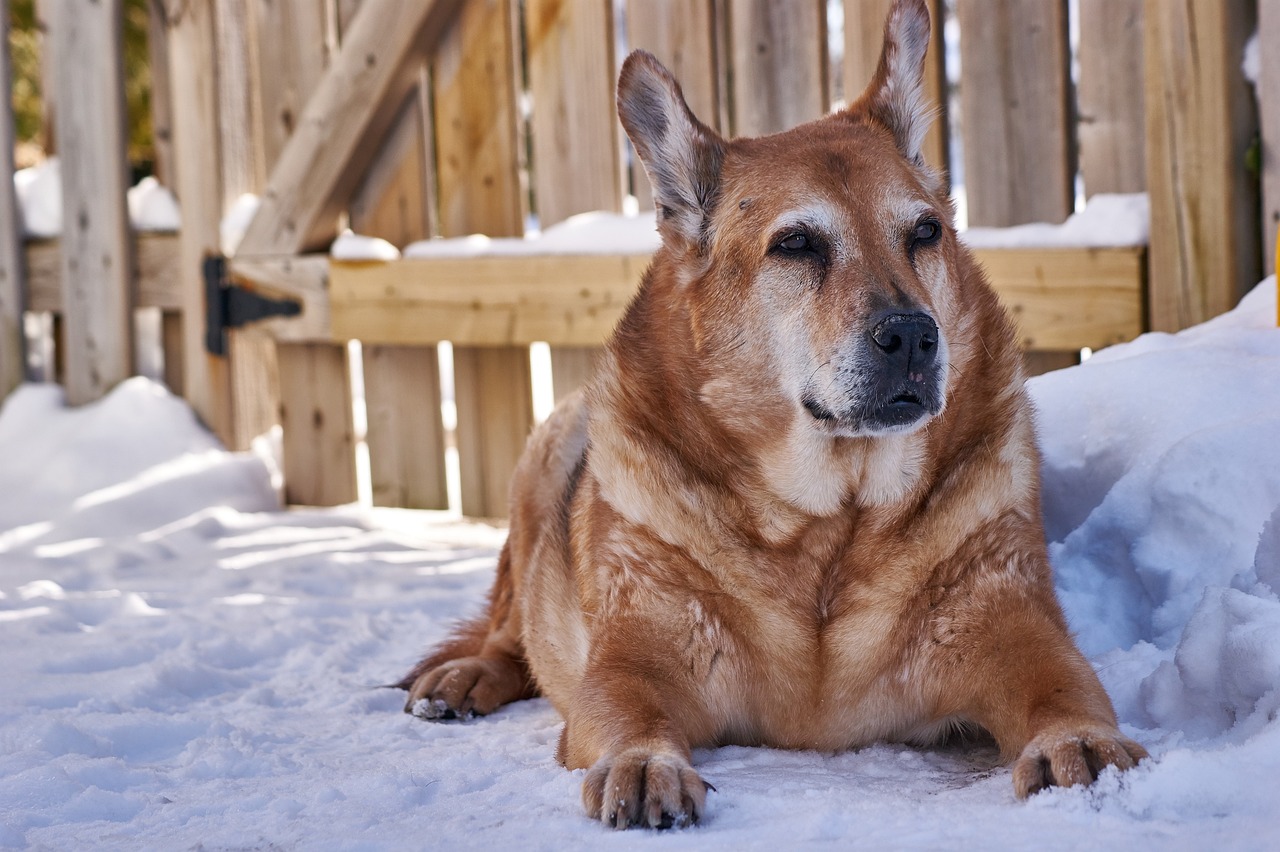
Dietary Considerations for Senior Pets
When it comes to caring for our beloved senior pets, diet plays a pivotal role in managing heart disease. Just like humans, our furry friends require a balanced diet that caters to their specific health needs, especially as they age. A heart-healthy diet can significantly improve their quality of life, helping them maintain energy levels and manage their condition effectively.
First and foremost, it’s essential to focus on low sodium options. High sodium levels can lead to fluid retention, which places additional strain on the heart. Therefore, choosing pet food labeled as "low sodium" can help prevent complications. Look for brands that use high-quality protein sources, as these can provide the necessary nutrients without overwhelming their system. It’s like choosing a fine wine over a cheap bottle; the quality makes all the difference!
In addition to selecting the right food, consider incorporating supplements into your pet's diet. Omega-3 fatty acids, for instance, are known for their anti-inflammatory properties and can support heart health. Similarly, taurine, an amino acid, has been shown to be beneficial for cardiac function. Always consult your vet before introducing new supplements to ensure they align with your pet's overall health plan.
Another important aspect of dietary management is portion control. Senior pets are often less active, which means they require fewer calories. Overfeeding can lead to obesity, further complicating heart disease. Monitoring their weight regularly is crucial. You might even want to create a feeding schedule that outlines specific meal times and portion sizes. This way, you can ensure your pet is getting the right amount of food without the temptation of extra treats.
Ultimately, the goal is to create a customized diet that meets your pet’s unique needs. It’s essential to remain vigilant and observe how your pet responds to any dietary changes. If they seem more energetic and their symptoms improve, you’re likely on the right track. On the other hand, if you notice any adverse reactions, it’s crucial to consult your veterinarian immediately.
To summarize, here are some key dietary considerations for senior pets with heart disease:
- Choose low sodium and high-quality protein foods.
- Consider incorporating beneficial supplements like omega-3 fatty acids and taurine.
- Monitor portion sizes to prevent obesity.
- Keep a close watch on your pet's response to dietary changes.
By focusing on these dietary considerations, you can help your senior pet thrive despite their heart condition. Remember, a well-balanced diet is not just about feeding; it’s about nurturing their overall health and happiness.
1. What are the best types of food for senior pets with heart disease?
It's best to choose foods that are low in sodium and high in quality protein. Look for specialized diets formulated for heart health.
2. Can I give my senior pet supplements for heart health?
Yes, supplements like omega-3 fatty acids and taurine can be beneficial, but it's essential to consult your veterinarian before adding them to your pet's diet.
3. How can I monitor my senior pet's weight?
Regular weigh-ins at home or during veterinary visits can help you keep track of your pet's weight. Make adjustments to their diet as needed based on their activity level.
4. Are there any foods I should avoid?
Avoid high sodium foods and treats, as they can exacerbate heart conditions. It's also wise to steer clear of overly fatty or processed foods.
Recommended Diets
When it comes to managing heart disease in senior pets, nutrition plays a pivotal role. A carefully tailored diet can significantly improve your pet's quality of life and support their heart health. First and foremost, it's essential to focus on a low-sodium diet. High sodium intake can lead to fluid retention, which can worsen heart conditions. Thus, opting for pet food that is specifically formulated for heart health is a wise choice. Many brands offer low-sodium options that still provide the necessary nutrients your furry friend requires.
In addition to low sodium, a diet rich in high-quality protein is crucial. Proteins are the building blocks of your pet's body and can help maintain muscle mass, especially in senior pets who may be less active. Look for protein sources such as chicken, turkey, and fish, which are not only tasty for your pet but also easier to digest. It's important to avoid processed meats that often contain preservatives and additives that can be harmful to their health.
Moreover, incorporating omega-3 fatty acids into your pet's diet can be beneficial. These healthy fats, found in fish oil and certain seeds, are known to have anti-inflammatory properties and can support heart function. You might consider adding a supplement or choosing a pet food that lists omega-3 fatty acids among its ingredients. Additionally, taurine, an amino acid found in meat, is essential for heart health, particularly in dogs. Ensuring that your pet's diet includes adequate amounts of taurine can help support their cardiac function.
To give you a clearer idea of what a heart-healthy diet looks like, here's a simple
| Food Type | Examples | Benefits |
|---|---|---|
| Low-Sodium Protein | Chicken, Turkey, Fish | Supports muscle maintenance, low in harmful sodium |
| Healthy Fats | Fish Oil, Flaxseed | Anti-inflammatory properties, supports heart function |
| Whole Grains | Brown Rice, Oats | Provides energy, fiber for digestive health |
| Fruits & Vegetables | Blueberries, Spinach | Rich in antioxidants, supports overall health |
In conclusion, the right diet is a cornerstone of managing heart disease in senior pets. By focusing on low-sodium, high-quality protein sources, and incorporating beneficial supplements, you can help ensure that your beloved companion enjoys a healthier, happier life. Always consult with your veterinarian before making significant dietary changes to ensure that your pet's specific needs are met.
Q: Can I feed my senior pet regular dog food?
A: It depends on the formulation. Regular dog food may not be suitable if it contains high sodium or unhealthy additives. Look for foods specifically designed for heart health.
Q: Are there any human foods that are safe for my pet?
A: Yes, certain human foods like cooked chicken, carrots, and blueberries can be safe and even beneficial. However, avoid foods like chocolate, grapes, and onions, which are toxic to pets.
Q: How can I tell if my pet is getting the right nutrition?
A: Regular veterinary check-ups can help monitor your pet's health. Look for signs of good energy levels, a healthy coat, and a stable weight.
Q: Should I consider supplements for my pet?
A: Supplements like omega-3 fatty acids and taurine can be beneficial but consult your vet for personalized recommendations.
Supplements for Heart Health
When it comes to managing heart disease in senior pets, supplements can play a crucial role in supporting their overall heart health. Just like us, pets can benefit from certain nutrients that help maintain and improve cardiovascular function. It's essential to consult with your veterinarian before introducing any new supplements into your pet's diet, as they can provide tailored advice based on your pet's specific condition and needs.
One of the most beneficial supplements for heart health is omega-3 fatty acids. Found in fish oil, these fatty acids have been shown to reduce inflammation and improve heart function. They can help lower blood pressure and triglyceride levels, making them a fantastic addition to your senior pet's diet. Another important supplement is taurine, an amino acid that is vital for heart health. It aids in maintaining proper heart muscle function and can help prevent certain types of heart disease, particularly in breeds predisposed to these conditions.
In addition to omega-3 fatty acids and taurine, coenzyme Q10 is another supplement worth considering. This antioxidant helps support energy production in heart cells and can improve overall heart function. Additionally, L-carnitine is known to aid in fat metabolism and energy production, providing further support to your pet’s heart health.
While these supplements can be incredibly beneficial, it's important to remember that they should complement a well-balanced diet rather than replace it. A heart-healthy diet, combined with the right supplements, can significantly enhance your senior pet's quality of life. Always keep an eye on your pet's response to new supplements and report any changes to your veterinarian. They can help you adjust dosages or suggest alternatives if necessary.
To summarize, here’s a quick look at some of the key supplements that can support heart health in senior pets:
| Supplement | Benefits |
|---|---|
| Omega-3 Fatty Acids | Reduces inflammation, lowers blood pressure, and improves heart function. |
| Taurine | Supports heart muscle function and prevents certain heart diseases. |
| Coenzyme Q10 | Enhances energy production in heart cells and supports overall heart health. |
| L-Carnitine | Aids in fat metabolism and energy production, benefiting heart function. |
In conclusion, the right supplements can make a world of difference for senior pets diagnosed with heart disease. By working closely with your veterinarian and monitoring your pet's health, you can ensure they receive the best possible care and support for their heart health.
Q: Can I give my pet human supplements?
A: It's not advisable to give your pet human supplements without consulting a veterinarian, as some ingredients may be harmful to pets.
Q: How do I know if a supplement is safe for my pet?
A: Always consult with your veterinarian before starting any new supplement. They can recommend products that are safe and effective for your pet's specific needs.
Q: How long will it take to see results from supplements?
A: The time frame can vary depending on the supplement and your pet's condition. Regular follow-ups with your vet can help track progress.

Exercise and Activity Management
Managing exercise and activity for senior pets with heart disease is a delicate balancing act. Just like us, our furry friends need to stay active to maintain their health, but overexertion can lead to serious complications. So, how do you strike the right balance? It's all about understanding your pet's unique needs and limitations. Think of it as a dance; you need to know the rhythm of your pet's heart and adjust accordingly.
First and foremost, it's essential to tailor exercise to your pet's specific condition. Not all pets with heart disease are the same; some might have a mild condition, while others may be more severely affected. Therefore, monitoring your pet's stamina and energy levels is crucial. If your pet seems fatigued or shows signs of distress during activity, it’s a clear signal to dial it back. Gentle walks can be a great way to keep them moving without pushing them too hard. Aim for short, frequent walks rather than long, strenuous outings. This way, you can ensure they get the exercise they need without the risk of overexertion.
Additionally, consider incorporating safe playtime activities into your pet's routine. Activities that are low-impact yet engaging can help keep your pet active without straining their heart. For example, playing with a soft toy or engaging in gentle tug-of-war can be both fun and safe. Always pay attention to your pet's cues—if they seem to lose interest or tire quickly, it's time to wrap it up. Remember, the goal is to keep them moving while ensuring their heart stays happy!
To help you better understand how to manage your pet's exercise routine, here’s a simple table outlining different activity levels based on your pet's condition:
| Condition Severity | Recommended Activities | Duration |
|---|---|---|
| Mild | Short walks, gentle play | 15-30 minutes, 2-3 times a day |
| Moderate | Leisurely walks, interactive toys | 10-20 minutes, 2-3 times a day |
| Severe | Short, slow walks, minimal play | 5-10 minutes, once a day |
Lastly, regular check-ins with your veterinarian are vital to ensure your exercise plan is suitable for your pet. They can provide tailored advice based on your pet's health status and may suggest modifications to keep your furry friend safe and healthy. So, keep those vet visits on your calendar and make them a priority!
Q: How can I tell if my pet is overdoing it during exercise?
A: Watch for signs of fatigue, such as excessive panting, lagging behind, or reluctance to continue. If your pet seems distressed, it's essential to stop the activity immediately.
Q: Are there specific exercises that are best for senior pets with heart disease?
A: Yes! Low-impact activities like short walks, gentle play with soft toys, and even swimming (if accessible) can be great options. Always consult your vet to tailor the activities to your pet's needs.
Q: How often should I exercise my senior pet?
A: It depends on your pet's health condition. Generally, short sessions of exercise spread throughout the day are best. Start with what they can handle and gradually increase as tolerated.
Tailoring Exercise to Your Pet's Needs
When it comes to keeping your senior pet with heart disease active, one size definitely does not fit all. Each furry friend has unique needs and capabilities, especially if they are dealing with a heart condition. Think of it like a personalized workout plan; just as we wouldn’t push a couch potato to run a marathon, we need to consider our pets' individual health status and stamina. The goal is to keep them engaged and moving without overexerting them.
First and foremost, it’s essential to consult with your veterinarian before starting or adjusting your pet's exercise routine. They can provide valuable insights into what level of activity is safe for your pet based on their specific heart condition. Once you have the green light, you can begin tailoring an exercise plan that suits your pet's needs.
Here are some key considerations to keep in mind:
- Start Slow: Begin with short, gentle walks. Gradually increase the duration as your pet becomes more accustomed to the activity.
- Monitor Their Response: Pay attention to how your pet reacts during and after exercise. Signs of fatigue or distress, such as excessive panting or reluctance to continue, are signals to slow down.
- Incorporate Variety: Mix up the activities to keep things interesting. Gentle games like fetch, tug-of-war, or even simple hide-and-seek can provide mental stimulation as well as physical activity.
- Rest Periods: Ensure your pet has plenty of breaks during playtime. Just like us, they need time to catch their breath and recuperate.
Additionally, consider their favorite activities and adapt them to their current abilities. If your dog loves to chase after a ball, try rolling it a shorter distance or using a soft toy that’s easier to retrieve. For cats, engaging them with feather wands or laser pointers for short bursts can keep them active without overexerting themselves. Remember, the key is to keep the activity enjoyable and stress-free.
Lastly, keep an eye on the weather. Hot or humid days can be particularly tough on senior pets, especially those with heart issues. Opt for early morning or late evening walks when temperatures are cooler. Always carry water with you to keep your pet hydrated, and don’t hesitate to cut the exercise short if you notice any signs of distress.
By tailoring your pet's exercise routine to their specific needs, you can help them maintain a healthy lifestyle while managing their heart condition. It’s all about finding that perfect balance between activity and rest, ensuring your beloved companion stays happy and healthy.
Q: How much exercise does my senior pet need?
A: The amount of exercise varies by pet. Generally, short walks of 10-15 minutes a few times a day are beneficial, but always consult your vet for personalized recommendations.
Q: What signs should I look for during exercise?
A: Watch for signs of fatigue, such as excessive panting, stumbling, or reluctance to continue. If you notice these signs, it's best to stop the activity and allow your pet to rest.
Q: Can my pet still play with other animals?
A: Yes, but supervise their interactions closely. Ensure the play is gentle and does not lead to overexertion or stress.
Q: Are there specific exercises to avoid?
A: High-impact activities, such as jumping or running for extended periods, should be avoided. Gentle walks and low-impact games are preferable.
Safe Playtime Activities
When it comes to keeping your senior pet with heart disease active, the key is to find a balance between engaging activities and ensuring their safety. Think of it as a dance; you want to move gracefully without overexerting them. Gentle playtime activities can help maintain their physical health and mental stimulation without putting too much strain on their hearts. So, what are some safe playtime activities you can incorporate into your pet's routine?
First off, consider interactive toys that encourage light movement without requiring high energy. Toys that dispense treats can motivate your pet to get up and move a little while still being gentle on their heart. You might also explore gentle tug-of-war games using soft ropes or fabric toys. Just remember, the goal here is to keep the tugging light and brief to avoid any strain.
Another fantastic option is short, leisurely walks. While a brisk walk may be off the table, a slow stroll around the yard or neighborhood allows your pet to enjoy the sights and smells without overdoing it. Keep the duration short—about 10 to 15 minutes is ideal. It's like taking a scenic drive instead of a race; the destination is enjoyable, but the journey is what matters.
Additionally, consider incorporating gentle fetch games using a soft ball or plush toy. Instead of throwing the toy far, toss it just a few feet away. This encourages your pet to move without the risk of excessive exertion. Always keep a close eye on your pet’s breathing and energy levels during these activities. If they seem tired or winded, it’s time to take a break.
Lastly, don’t underestimate the power of mental stimulation. Puzzle toys that require your pet to think and solve problems can be incredibly beneficial. These toys can keep their mind sharp while minimizing physical strain. You can also engage in simple training sessions, teaching them new tricks or reinforcing old ones. It’s a win-win: they get to exercise their brain while enjoying your company.
In summary, safe playtime activities for senior pets with heart disease should focus on light, engaging options that promote both physical and mental health. By keeping their playtime gentle and enjoyable, you can ensure your furry friend remains happy and active without compromising their well-being.
- What should I avoid when playing with my senior pet? Avoid high-energy games like chasing or jumping, as these can strain their heart.
- How can I tell if my pet is overexerting themselves? Watch for signs like excessive panting, coughing, or reluctance to continue playing.
- Are there specific toys better suited for senior pets? Yes, look for soft, lightweight toys that are easy for them to handle.
- How often should I engage my pet in play? Aim for short play sessions several times a week, adjusting based on their energy levels.

Monitoring Your Pet’s Condition
Keeping a close eye on your senior pet's health is crucial, especially when dealing with heart disease. Just like a seasoned detective, you must be vigilant and observant. Regular monitoring can help you catch any changes in your pet's condition before they escalate into serious issues. Think of it as having a health radar—one that picks up on subtle shifts in your furry friend's well-being. By being proactive, you can ensure that your pet receives the best possible care and support.
One effective way to monitor your pet's condition is by maintaining a health journal. This journal can serve as a comprehensive record of your pet's symptoms, medications, dietary changes, and veterinary visits. By jotting down your observations, you can create a clearer picture of your pet's health over time. This information is invaluable during veterinary check-ups, as it allows you to communicate effectively with your veterinarian about any concerns or changes you've noticed. For instance, if you observe a sudden increase in coughing or lethargy, having a detailed account can help the vet make informed decisions about your pet's treatment.
| Health Journal Entries | Details |
|---|---|
| Date | Write the date of observation |
| Symptoms | List any symptoms observed (e.g., coughing, lethargy) |
| Diet Changes | Note any changes in diet or eating habits |
| Medications | Record any medications given and their dosages |
| Veterinary Visits | Document any vet visits and their outcomes |
Additionally, regular veterinary check-ups are essential for monitoring your pet's heart health. These visits allow your veterinarian to conduct thorough examinations, run necessary tests, and adjust treatment plans as needed. Just like a car needs routine maintenance to run smoothly, your pet requires consistent check-ups to ensure their heart is functioning optimally. During these visits, be sure to discuss any changes you've noted in your health journal, as this will help your vet provide the best care possible.
In summary, monitoring your senior pet's condition is an ongoing process that involves observation, documentation, and professional care. By being proactive and attentive, you can help your beloved companion lead a happier, healthier life despite their heart disease. Remember, your pet relies on you for their well-being, and your efforts can make a world of difference.
- How often should I take my pet to the vet for check-ups? Ideally, senior pets should have check-ups every six months, but your vet may recommend more frequent visits based on your pet's condition.
- What should I include in my pet's health journal? Include symptoms, changes in behavior, diet modifications, medications, and notes from veterinary visits.
- Are there any specific signs that indicate my pet's condition is worsening? Look for increased coughing, difficulty breathing, lethargy, or any sudden changes in appetite or behavior.
Keeping a Health Journal
Keeping a health journal for your senior pet can be one of the most beneficial practices you adopt as a pet owner. Think of it as a roadmap to your pet's health journey, helping you navigate the twists and turns of managing heart disease. By documenting your pet's daily activities, symptoms, medications, and any changes in behavior, you create a comprehensive picture that can assist both you and your veterinarian in making informed decisions.
In your health journal, you should include a variety of details that will be helpful during vet visits. For instance, track:
- Daily Symptoms: Note any coughing, lethargy, or difficulty breathing.
- Medications: Write down dosages and times to ensure consistency.
- Dietary Changes: Keep a record of any new foods or supplements introduced.
- Behavioral Changes: Document any shifts in your pet’s activity levels or mood.
This journal not only serves as a communication tool for your veterinarian but also empowers you as a pet owner. By recognizing patterns in your pet's health, you can spot potential issues before they escalate. For example, if you notice that your pet has been more lethargic over the past week, you can bring this up at your next vet appointment, providing valuable context that may lead to quicker diagnosis and treatment.
Additionally, consider including a section for veterinary visits. Documenting the date, purpose of the visit, and any recommendations made by your vet can help you stay organized and ensure that you follow through on necessary treatments. This can be especially crucial for senior pets, who may require more frequent check-ups.
To make it easier to keep track, you might want to create a simple table within your journal. Here’s a basic example:
| Date | Symptoms Observed | Medications Administered | Veterinary Notes |
|---|---|---|---|
| MM/DD/YYYY | Coughing, Lethargy | Medication Name, Dosage | Follow-up in 2 weeks |
In summary, a health journal is not just a collection of notes; it’s a powerful tool that enhances your ability to care for your senior pet with heart disease. By staying organized and observant, you can make a significant difference in your pet's quality of life. So grab a notebook or set up a digital document, and start your journey towards better pet health today!
1. What should I include in my pet's health journal?
You should document daily symptoms, medications, dietary changes, behavioral changes, and notes from veterinary visits. This will help you and your vet keep track of your pet's health.
2. How often should I update the health journal?
It's best to update the journal daily or weekly, especially after any noticeable changes in your pet's condition or behavior.
3. Can I use a digital format for the health journal?
Absolutely! Many pet owners prefer digital formats because they are easy to edit and share with veterinarians.
4. How can a health journal help during veterinary visits?
A health journal provides your vet with a detailed history of your pet's condition, which can lead to quicker and more accurate diagnoses.
5. Is it necessary to keep a health journal for all pets?
While it’s particularly useful for senior pets or those with chronic conditions, any pet can benefit from a health journal to track general health and wellness.
Regular Veterinary Check-ups
When it comes to managing heart disease in senior pets, are not just important—they're essential. Think of your pet's heart health like a car engine; without regular maintenance, it can break down unexpectedly. These check-ups allow your veterinarian to monitor your pet's condition closely, adjusting treatments and medications as necessary. During these visits, your vet will perform a series of evaluations that may include listening to your pet's heart, checking for any signs of fluid buildup, and possibly running blood tests or imaging studies. It’s like taking your pet in for a tune-up, ensuring everything is running smoothly.
But how often should you schedule these check-ups? Generally, senior pets should see the vet at least twice a year, but if your furry friend has been diagnosed with heart disease, more frequent visits may be necessary. This proactive approach can help catch any changes in your pet’s condition early, making a world of difference in their treatment and overall quality of life.
During these visits, it’s crucial to come prepared. Bring along any notes from your health journal that detail your pet’s symptoms, behavioral changes, or any new concerns. This information can give your veterinarian valuable insights, allowing them to tailor their approach to your pet's unique needs. For instance, if you've noticed your pet becoming more lethargic or having difficulty with activities they once enjoyed, sharing these observations can lead to a more accurate diagnosis and effective treatment plan.
Additionally, keep in mind that heart disease can be a progressive condition. Regular check-ups help in tracking the progression and adjusting the care plan accordingly. Your vet might recommend specific tests to evaluate heart function over time, which can help determine if your pet's treatment is effective or if adjustments are needed.
In summary, think of regular veterinary check-ups as a lifeline for your senior pet with heart disease. They not only provide an opportunity for early detection of potential issues but also foster a strong partnership between you and your veterinarian. This collaboration ensures that your pet receives the best possible care tailored to their needs. So, mark those calendars and make those appointments—your pet's heart will thank you!
- How often should my senior pet see the vet? It's recommended that senior pets visit the vet at least twice a year, but pets with heart disease may need more frequent check-ups.
- What should I discuss during a vet visit? Bring notes on any symptoms, behavioral changes, and concerns to help your vet tailor their approach to your pet's needs.
- Can heart disease in pets be managed with medication? Yes, many pets with heart disease can be managed with medications, but it's essential to follow your vet's recommendations closely.
- Are there specific tests my vet might perform? Your vet may conduct heart function tests, blood tests, and imaging studies to monitor your pet's condition.
Frequently Asked Questions
-
What are the common types of heart disease in senior pets?
Senior pets can suffer from various types of heart disease, including congenital heart defects, valvular heart disease, and cardiomyopathy. Each type has different causes and affects pets in unique ways, so understanding these can help you manage your pet's health better.
-
How can I tell if my pet is showing signs of heart disease?
Look out for symptoms like coughing, lethargy, and difficulty breathing. If you notice any behavioral changes, such as reluctance to play or decreased activity, these could also signal heart issues. Regular observation is key!
-
When should I take my pet to the vet for heart-related issues?
If you notice any alarming symptoms, such as swollen abdomen or rapid breathing, it's essential to seek veterinary care immediately. Additionally, if your pet's behavior changes significantly, don't hesitate to consult your vet.
-
What dietary changes should I consider for my senior pet with heart disease?
A heart-healthy diet typically involves low sodium and high-quality protein. It's important to consult your veterinarian for specific dietary recommendations tailored to your pet's condition.
-
Are there any supplements that can help my pet's heart health?
Yes! Supplements like omega-3 fatty acids and taurine can support heart function. Always talk with your vet before introducing any new supplements to ensure they are safe for your pet.
-
How much exercise should my senior pet get?
Exercise needs vary based on your pet's condition. Generally, it's important to tailor activity levels to your pet's stamina. Gentle walks and light play can help keep them engaged without overexertion.
-
What are some safe playtime activities for pets with heart disease?
Consider gentle games like fetch or light tug-of-war. Activities that encourage movement without intense exertion are ideal for keeping your pet active and healthy.
-
How can I effectively monitor my pet’s heart condition?
Keeping a health journal is a great way to track symptoms, medications, and vet visits. This helps you communicate effectively with your veterinarian and ensures your pet gets the best care possible.
-
How often should my pet see the vet for heart disease management?
Regular veterinary check-ups are crucial. Your vet can provide tailored advice on how often your pet should be seen based on their specific condition and health needs.

